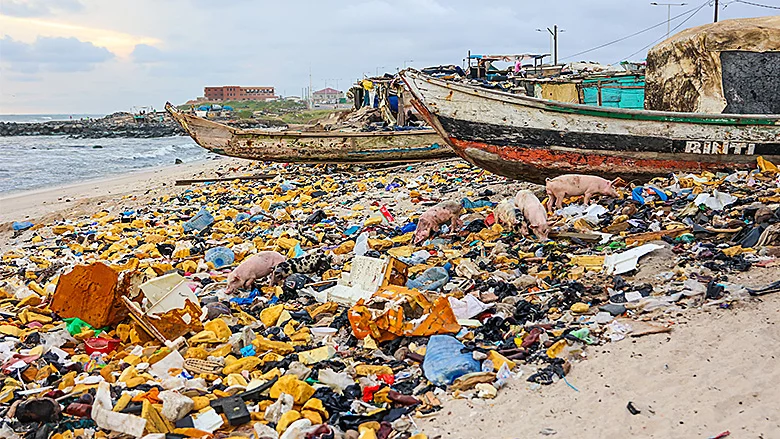Plastic is everywhere in our daily life. From grocery bags to water bottles, takeaway boxes to disposable straws, we use plastic without thinking. Most of us don’t realise that these small habits are creating a big problem for our cities and environment.
In urban areas like Karachi, Lahore, and Islamabad, plastic waste often clogs streets, drains, and waterways. During the monsoon, blocked drains can cause serious flooding, damaging homes, shops, and roads. Landfills are overflowing, and plastic can take hundreds of years to decompose. Even small daily actions, like buying bottled water, using plastic bags for short trips, or ordering food online in plastic packaging, add up quickly. The rise of e-commerce and food delivery has further increased plastic use, making urban waste management more challenging than ever.
Plastic pollution is not just an eyesore—it is dangerous for life. Birds, fish, and stray animals often mistake plastic for food, which can harm them or even cause death. Microplastics can enter water systems and eventually reach humans through food and drinking water, causing long-term health risks. Many people think disposing of plastic is someone else’s responsibility, which worsens the problem. Combined with limited recycling systems and poor waste management in cities, these habits create a growing environmental crisis.
The good news is that small, conscious changes can make a difference. Using reusable bags and steel or glass bottles and avoiding plastic straws are easy steps anyone can take. Proper waste segregation at home, recycling, and choosing eco-friendly packaging also help reduce the burden. Local governments can improve recycling facilities, enforce bans on single-use plastics, and run awareness campaigns through schools, media, and community programs. Private companies can contribute by switching to sustainable packaging and encouraging customers to use less plastic.
Plastic pollution is more than an environmental issue—it reflects the daily choices we make. Urban Pakistan can become cleaner, safer, and healthier if citizens and authorities work together. Awareness is the first step. Once people notice the small habits that harm our cities, they can start changing them. Every plastic item avoided today is a step toward a greener, safer, and more sustainable tomorrow.
